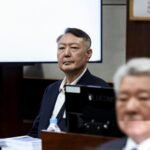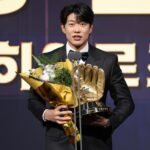Samsung Electronics Co. has achieved its highest market share in the US smartphone market in four years, thanks to its first AI phone the Galaxy S24 series, which has attracted demand from other Android smartphone users such as Google and TCL.
According to global market research firm Counterpoint Research on Friday, Samsung Electronics recorded a 31% market share in the US smartphone market in the first quarter.
This is up four percentage points year-over-year and the highest since the first quarter of 2020.
The overall smartphone shipments in the US market showed an 8% decrease year over year.
This decline was largely influenced by the gradual discontinuation of LTE services, which led to a decrease in shipments of Android devices.
However, this decline was mainly observed in the low-end and mid-range products priced below $300, while the preference for high-end premium phones has steadily increased.
Samsung’s success in the US market seems to be attributed to increasing the initial shipment volume of the Galaxy S24 series. Strategies such as seizing the AI phone image and advancing the release date to Jan. also played a role.
Samsung’s increased market share in the US is attributed to meeting the needs of older consumers who sought upgrades to new devices.
Google and TCL, which each held a market share of 2% last year, saw their market share drop to around 1% in the first quarter of this year, which is believed to have been absorbed by Samsung.
Although Samsung has increased its market share, Apple, a domestic company, still maintains the top position in the US market with a commanding market share of 52%, unchanged from last year.
By Jeong-Soo Hwang
hjs@hankyung.com















